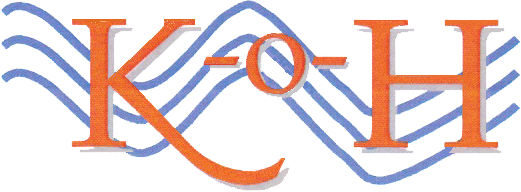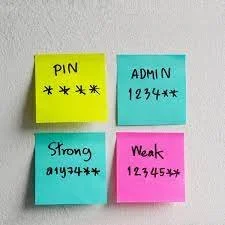MAY 1: NATIONAL CHOCOLATE PARFAIT DAY
It’s hard to resist a sweet celebration for National Chocolate Parfait Day. The delicious layers of chocolate, cream, and more chocolate sweetly stacked together is enough to make us go straight to dessert. In French, the word “parfait” means “perfect.” French and Americans, however, have differing opinions on what a parfait really is. The traditional French parfait is made by boiling cream, adding egg, sugar, and syrup, then creating a custard-type puree, which is then frozen. Americans, on the other hand, layer ingredients of differing varieties. Both French and Americans use a clear, tall glass when serving a chocolate parfait.
MAY 2: NATIONAL PLAY YOUR UKULELE DAY
National Play Your Ukulele Day is celebrated to interest more and more people in the instrument, while also encouraging those playing it to strum their favorite tunes. The ukulele belongs to the guitar family, though the guitar has 6 strings and the ukulele only 4. When it comes to size, a ukulele is much smaller than a guitar, making it easy to carry around and play. The word ‘ukulele’ has Hawaiian roots meaning “jumping flea,” probably because the musician’s fingers look like fleas jumping on the strings. Even though the instrument’s name has Hawaiian roots, it was brought to the island of Hawaii by Portuguese immigrants. The ukulele, aslo known as the “uke,” was brought to mainstream music in the early 20th century, and quickly became a popular instrument for jazz music. Mike Lynch — “Ukulele Mike” — is behind National Play Your Ukulele Day, first celebrated in 2011. Lynch was a school teacher and an online ukulele instructor.
MAY 3: NATIONAL PUBLIC RADIO DAY
This day celebrates public radio stations and community radio organizations that have come a long way in informing, entertaining, and shaping our local communities. The first non-governmental radio broadcasting started in 1916. These broadcasts were not voices or music but rather Morse code signals. The first World War halted all non-governmental radio broadcasts, and the end of the war heralded the beginning of a new era for radio. Technology had advanced, with the radio’s ability to transmit both voices and music. Radio stations were primarily employed for academic reasons by colleges and universities in the 1920s. By the 1940s, the lowest set of numbers in the FM spectrum had been picked for educational and non-profit reasons, which served as the impetus for creating Public Radio in 1967 when President Johnson signed the Public Broadcasting Act. The Corporation for Public Broadcasting (CPB) was created, leading to the formation of the National Public Radio (NPR). Today it is a prominent media organization that sources and controls informative and educational media content in the US. The origins of National Public Radio Day are unknown, but was first observed in the 1990s — clearly influenced by the UNESCO-recognized World Radio Day in February.
MAY 4: WORLD PASSWORD DAY
Each year, on the first Thursday in May, World Password Day promotes better password habits. Passwords are critical gatekeepers to our digital identities, allowing us to access online shopping, dating, banking, social media, private work, and life communications. In his 2005 book Perfect Passwords, security researcher Mark Burnett first encouraged people to have a “password day” where they update important passwords. Inspired by his idea, Intel Security took the initiative to declare the first Thursday in May World Password Day in 2013. World Password Day is meant to create awareness of the need for good password security.
MAY 5: NATIONAL CARTOONIST DAY
National Cartoonists Day honors all those creative ink-stained artists, past and present, and the fascinating pieces they have created. Throughout the years, their talents bring humor and entertainment into our lives, while provoking thought and debate, too. American comic-strip writer and artist, Richard Outcault, is considered the inventor of the modern comic strip. He created the comic strips The Yellow Kid and Buster Brown.
Cartoon characters can be found in practically all media. They are on television and in newspaper and magazine comic strips (or the “funny papers”). Peanuts, Dennis the Menace, Beetle Bailey, Betty Boop, and so many more cartoon characters got their start in printed media. Comic books abound with cartoon characters. Cartoon characters have been on television since the days of black and white TV. Cartoon characters grace the big screen, too. Disney’s Mickey Mouse first appeared in the movie “Steamboat Willie” in 1928. More recent examples include Shrek, Aladdin, Nemo, and Dora the Explorer. Cartoon characters are used everywhere in advertising, too. Characters like the Trix Bunny and Captain Crunch adorn many cereal boxes. A well-recognized gecko and duck each sell insurance on television.
MAY 6: NATIONAL NURSES DAY
Often the first and last person a patient sees during a hospital visit, nurses are truly the rockstars! At the end of the 19th century, “The Lady with the Lamp” — Florence Nightingale — founded modern nursing. Thanks to her strict use of hand-washing and hygiene practices while caring for wounded soldiers in the Crimean War, Nightingale and her helpers reduced the death rate from 42% to 2% — ushering in nursing as we know it today.
Today, nurses — over 3 million — make up the highest percentage of the US healthcare workforce. They are more likely to sustain a back injury on a shift than construction workers, and walk an average of 5 kilometers per shift. The majority of registered nurses (59%) don’t practice in hospitals but elsewhere, such as nursing home or on home visits. Worldwide, they work across communities to keep people happy and healthy.
MAY 7: WORLD LAUGHTER DAY
Shrill or funny, giggly or bubbly, on this day let out your laughter to your heart’s content. Indeed, spend your life with laughter and joy. Laughter decreases stress. By laughing, the brain releases endorphins which make one feel happy.
The first World Laughter Day gathering took place in Mumbai, India in 1998. Around 12,000 members from the international laughter clubs attended the event — and laughed and laughed. In 2000, a “Happy-demic,” the first world laughter day outside India, was held Copenhagen, Denmark. Around 10,000 people attended, putting it in the “Guinness Book of World Records.”
Origins of laughter can be traced back 10 million years. Laughter is linked to high pain tolerance and even social status, but the primary function appears to be to create profound social bonds. As our ancestors started to live life in complex social structures, the quality of relationships became crucial for survival. There is supposedly a book in which King Philip of Macedonia, the father of Alexander the Great, requested an Athenian social club to write down its member’s funniest jokes. Athenaios of Naukratis, a 2 AD Greek writer, mentions the book’s existence. But it did not survive to the present day.
A book of all our funniest jokes. Now that’s fuel for a great Kendal committee!







